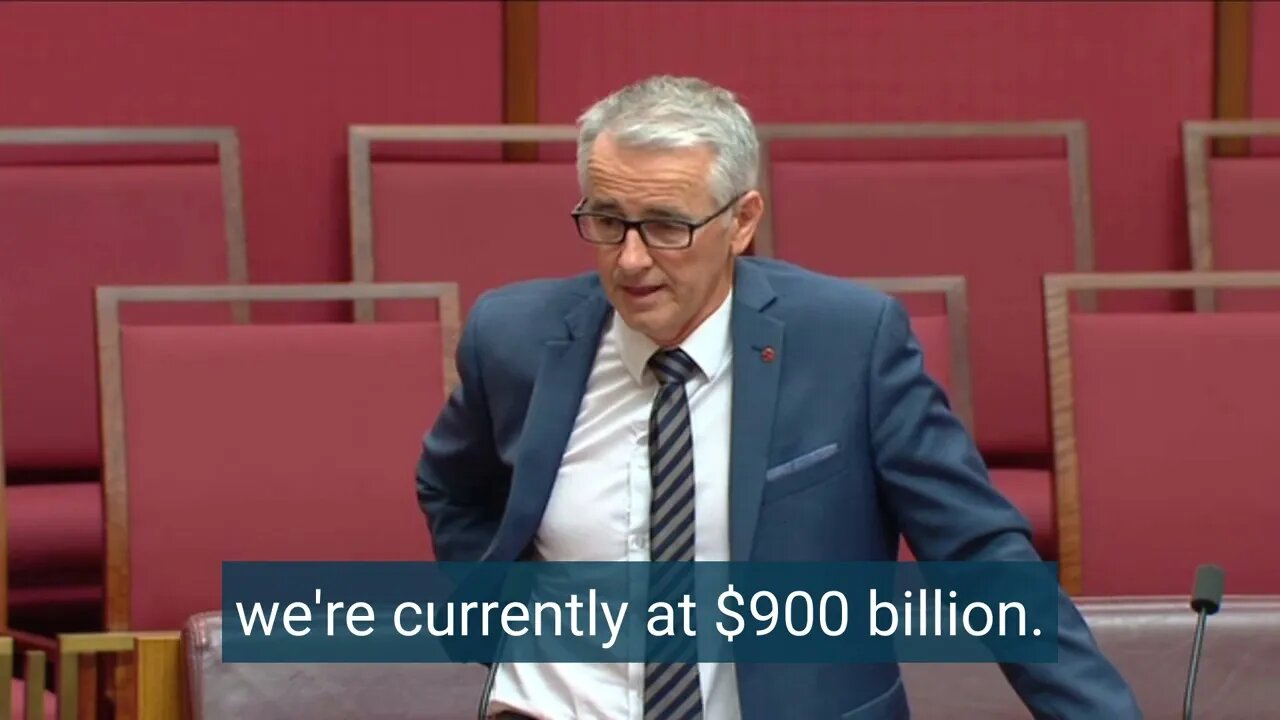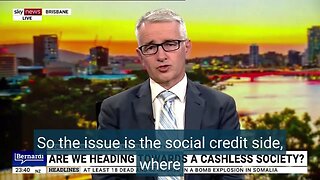Premium Only Content

Taxing unrealised gains on superannuation is totally unworkable - Senate Speech 8.03.23
In parliament after Question Time every day, backbenchers take note of the questions asked in QT.
To be honest it's a waste of time, but yesterday was my turn so I touched on a few of the issues of the day.
---
Senator RENNICK (Queensland) (8.03.23, 15:58): I'm glad Senator Ciccone quoted former Assistant Treasurer Rod Kemp. He didn't really have to go back that far, because I've said that all along, ever since I got into this chamber—that superannuation is a rort and that it was only a matter of time before Labor would try to get their hands on the money. But also, given that it is International Women's Day, we should talk about how inequitable superannuation really is for women. If we look at the mean balance of superannuation for women aged 60 to 64, it is $280,000, whereas for men it is $360,000. So, there's about a 30 per cent higher mean balance for men when they retire than there is for women. What could be better, on International Women's Day, than to decide to abolish super and let women keep their superannuation so they can own a house? At the end of the day, if there's a man and a woman in a house, they share it 50 per cent. What better way could there be of sharing the debt than that?
I would also like to follow up on Senator Liddle's questions, which I thought were very relevant. I commented earlier this week on the Labor Party abolishing the PBS subsidy for the 15,000 people with diabetes. I find it incredible that you would make it harder for these people by abolishing a drug that actually does work.
I note that the Labor Party continues to push a fifth shot of a vaccine that hasn't stopped transmission or infection. Maybe they should stop spending money on vaccines that don't work and put it back into measures for mental health and diabetes, which, mind you, is up by 10 per cent since the rollout of the COVID vaccine. This isn't surprising, because diabetes is an autoimmune disease and, as we know, the vaccine induces an autoimmune response. Surprise, surprise. Are we surprised that we get an increase in diabetes? No, we aren't—if I can answer my own rhetorical question.
I'd also like to pick up on Senator Ciccone's claim that we have $1 trillion in debt. We don't have $1 trillion in debt. I looked it up just then through the Australian Office of Financial Management, and we are currently at $900 billion. Can I say: a lot of that debt was incurred throughout COVID, in response to the hysteria driven by Labor premiers who got up there every day, day after day—one at nine o'clock; one at 10 o'clock; one at 11 o'clock—giving us the numbers of COVID cases. When there weren't COVID cases they'd tell us that there was COVID in the sewage. Then we'd go for three months without COVID, we'd get one case and we'd shut down the entire state over one case.
Finally, when COVID did break out last year, we were told not to go to the hospital. Rather, if you had a case of COVID, you were told to stay at home and take Panadol. After all the hoo-ha and being told how we had to shut down and lock down and how the federal government was basically blackmailed into throwing hundreds of millions of dollars at the state governments, which were just generating fear—that was the real pandemic: fear—we found out in the end that the hospitals still weren't ready.
They're still not ready today, mind you. Our ambulance waiting times are through the roof. The ambulance ramping is out of control. We have record waitlists across all the states. We overinvested in hysteria and didn't actually invest in good, solid, long-term health infrastructure like beds, like more doctors and like nurses. We didn't put more money on the front line for services, instead of fearmongering. Of course, that is what we get with this side of the government.
To get back to some of this original super stuff, personally, I've always been on the record as saying superannuation is a tax rort and it does favour the wealthy. But, can I say: this proposed rule that we're going to tax unrealised gains is totally unworkable. I'm not saying that as a politician. I'm saying that as a person who spent 30 years in finance, reconciling balance sheets.
I can assure you that, if you think you're going to be able to calculate unrealised gains in any equitable manner, you are kidding yourself. What's going to happen is that you're going to add compliance costs, so you're going to have to pay for an auditor or a valuer to value these assets. Then you're going to have liquidity problems because you're going to have to sell an asset to actually pay the tax. Then, the third problem is that you're going to generate uncertainty, because people aren't going to know what the value of an asset will be deemed to be before June 30. I would ask that you at least reconsider that unrealised gains proposition, because it's unworkable. (Time expired)
-
 2:44
2:44
Senator Gerard Rennick
1 year agoDigital currency or surveillance system? - Bernardi 24.09.23
320 -
 LIVE
LIVE
Right Side Broadcasting Network
7 days ago🔴 LIVE: The Inauguration of Donald J. Trump as the 47th President of The United States 1/20/25
94,304 watching -
 LIVE
LIVE
vivafrei
3 hours agoTHE DON OF A NEW AMERICA! Trump Inauguration Live Stream! Viva Frei Live!
5,075 watching -
 LIVE
LIVE
The Quartering
22 hours agoTrump Inauguration LIVE Broadcast & Commentary With DecoyVoice, Hannah Clare & Styxhexenhammer!
4,432 watching -
 53:47
53:47
Russell Brand
3 hours agoInauguration Day Live! – SF522
71.9K15 -
 2:43:30
2:43:30
Donald Trump Jr.
4 hours agoFull Coverage of My Father’s Inauguration, America is Back. | TRIGGERED Ep.209
252K212 -
 LIVE
LIVE
LFA TV
22 hours agoLIVE: INAUGURATION OF PRESIDENT DONALD J. TRUMP
5,869 watching -
 1:49:47
1:49:47
Donald J. Trump
2 hours agoThe 60th Presidential Inauguration Ceremony
268K443 -
 DVR
DVR
GOP
12 hours agoThe 60th Presidential Inauguration Ceremony
97.6K36 -
 LIVE
LIVE
Redacted News
4 hours agoLIVE INAUGURATION DAY COVERAGE | Trump officially takes office
7,892 watching